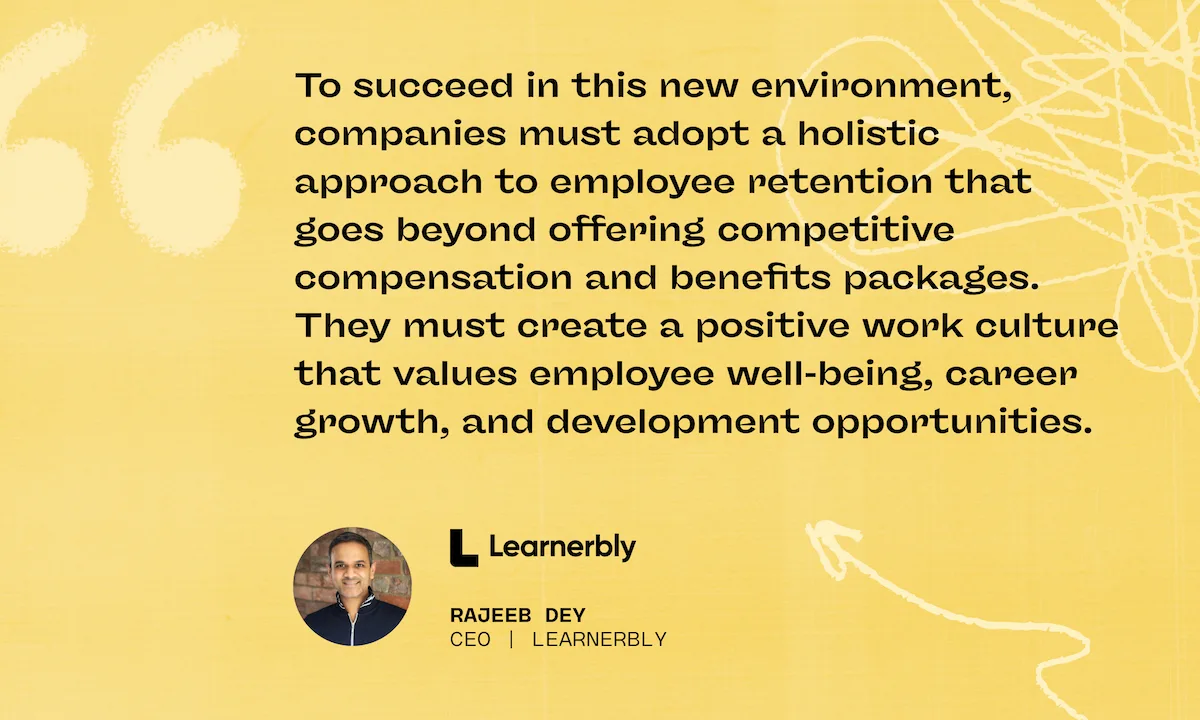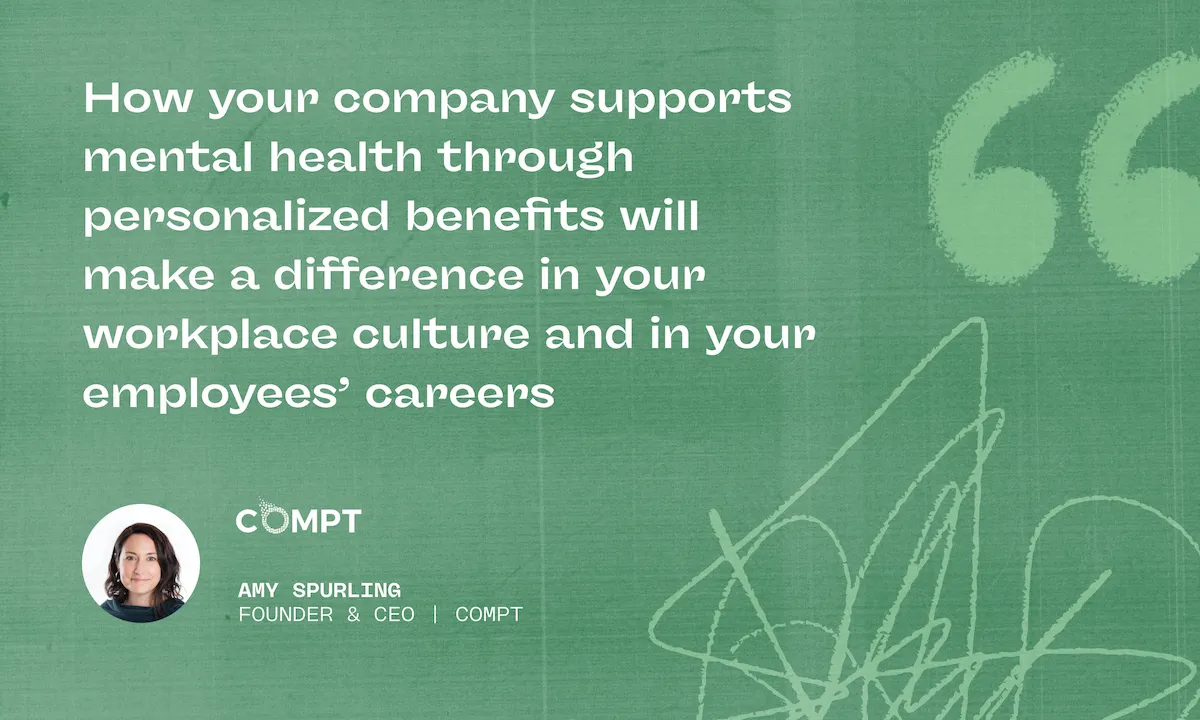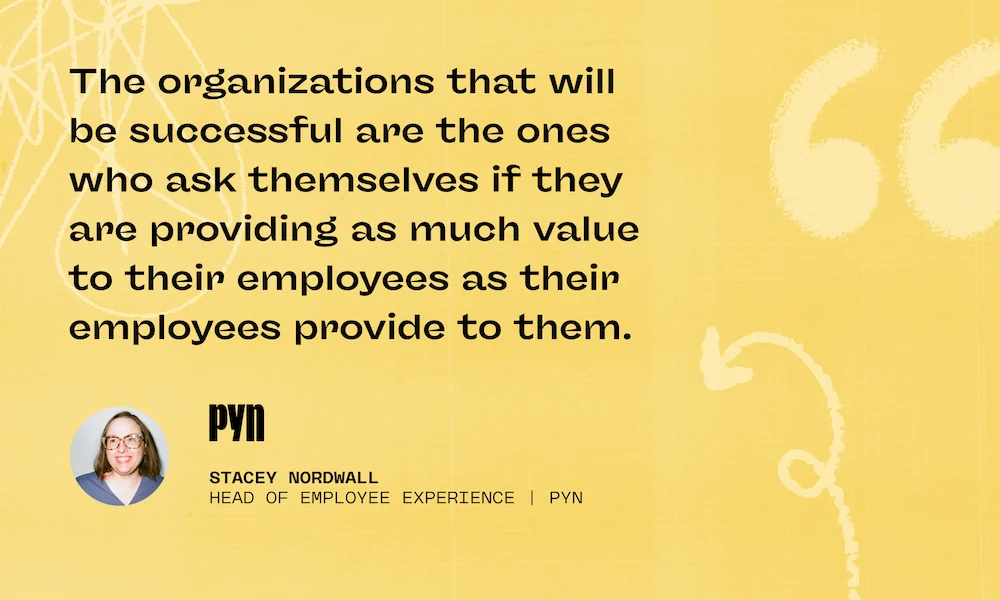For HR, People, and Workplace teams, the Transform conference in Las Vegas, Nevada, is their biggest opportunity to network, exchange ideas, and learn how other organizations are transforming their workplaces for the next era of work.
Oyster sent 37 members of our own fully remote and globally distributed workforce to Transform. But we were also eager to hear from our partners and friends on what trends loomed large at the three-day conference.
As it turns out, performance management, talent activation, and employee-centric work practices were top of mind for the thought leaders we connected with post-Transform.
Ongoing performance management is the name of the game
We caught up with Charthop CEO and Founder, Ian White, who emphasized the importance of continuous performance management for remote and hybrid teams.
“Especially in a remote and hybrid setting, it's critical to measure employee performance continuously and comprehensively — as opposed to one annual review. Performance reviews help companies understand their employees more holistically. Providing employees with regular, real-time feedback offers more opportunities for recognition and to identify broader career goals,” Ian explains.
“Continuously evaluating performance and having regular 1:1s promotes healthy conversations between managers and remote employees, which drives better outcomes, improves visibility, decreases turnover, and gives employees clarity on what they need to do to earn a promotion.”
.webp)
Oyster’s very own Senior Director of People Experience, Matt McFarlane, spoke on the topic of performance management during a Transform panel discussion titled “Putting Continuous Career Progression Into Practice.”
His advice? Build a culture around continuous feedback so that when it comes time for promotions, managers have documented, unbiased, and verifiable evidence that their direct report has achieved the competencies needed to progress.
Moving from talent acquisition to talent activation
Quiet quitting, the Great Resignation, employee disillusionment—the engagement gap between employees and their workplaces cannot be overstated. In the face of this, Learnerbly CEO, Rajeeb Dey believes work cultures matter more than ever.
“The modern workplace is undergoing a significant transformation, and one of the most significant trends is the shift from talent acquisition to talent activation,” says Rajeeb.
“The latter was a concept extensively discussed at Transform — retaining employees is not enough (we've all heard of "quite quitting"), so how do you also keep them engaged and productive? As we're going through uncertain economic times, this trend is likely to gain further momentum.
To succeed in this new environment, companies must adopt a holistic approach to employee retention that goes beyond offering competitive compensation and benefits packages. They must create a positive work culture that values employee well-being, career growth, and development opportunities.”

The shift from talent acquisition to talent activation also highlights the importance of upskilling and reskilling employees. As the skills required for jobs continue to evolve rapidly, companies must invest in training and development programs that keep their employees up-to-date with the latest technologies and industry trends. Organizations that approach this topic diligently will not only retain their top-performing employees but also create a culture of continuous and intentional learning that drives innovation and business success.”
A compassionate approach to benefits
While benefits and compensation remain top of mind across industries and geographies, there are newer dimensions and approaches inspiring HR leaders.
“As HR leaders are thinking about what’s most important, mental health is a key focus,” says Amy Spurling, Founder and CEO at Compt.
“We heard this often at Transform, both in speaker sessions and in conversations at our booth. We also know every journey is different. It’s impossible for a company to prescribe (and they shouldn't) a way to manage mental health. Instead, we need to offer personalized benefits that support each person and meet them where they’re at. This should go beyond Employee Assistance Programs and it requires a look at your overall leave strategy, as well.
One concept that really stuck with me was that of compassionate leave, and I think Cocoon does a fantastic job of framing this concept. All types of leave support mental health; whether it’s vacation time, days away from work to cope with a loss, or a break for mental health that isn’t labelled as such (hence compassionate leave) so people feel comfortable taking their time, how your company supports mental health through personalized benefits will make a difference in your workplace culture and in your employees’ careers."

Work should enrich — not extract
For Stacey Nordwall, Head of Employee Experience at Pyn, there’s a clear shift in how employees are thinking and relating to their workplaces.
“After years of the hustle and grind culture, as well as the immense stress of living through a global pandemic, employees are burnt out. They are reassessing and reexamining what role work should have within their lives.
In the words of the EX Manifesto, employees are looking for their work to be enriching their lives, not extracting from them. The organizations that will be successful are the ones who ask themselves if they are providing as much value to their employees as their employees provide to them (and therefore their customers).
This creates a unique opportunity for both employees and organizations. Employees can choose to work for orgs that align with their values and support them in their lives. Organizations get the opportunity to build both their employer and customer brands. They can show they provide an authentic and consistent employee experience that mirrors the experience they deliver to their customers. Thus making them a brand that employees want to work for and customers want to purchase from.”

Putting humans at the heart of work
To build a better future of work, visionary leaders are centering the needs of their employees more than ever—whether that’s through thoughtful and continuous career development practices, a compassionate approach to leave and benefits, or focusing on ongoing employee engagement challenges.
Our takeaways from these conversations? Work benefits everyone when policies and practices equally reflect the needs of both employees and employers.
Thanks to our friends at Charthop, Learnerbly, Compt, and Pyn for sharing these insights as well as everyone who stopped by booth #411 to introduce themselves during this year’s Transform conference. We’ll see you all again in Vegas next year!
About Oyster
Oyster is a global employment platform designed to enable visionary HR leaders to find, engage, pay, manage, develop, and take care of a thriving distributed workforce. Oyster lets growing companies give valued international team members the experience they deserve, without the usual headaches and expense.
Oyster enables engagement anywhere in the world—with reliable, compliant payroll, and great local benefits and perks.








.avif)





_Leader_Leader%201%20(2)%20(3).svg)
_Leader_UnitedKingdom_Leader%201%20(1).svg)
_Leader_Europe_Leader%201%20(1).svg)
_Leader_Mid-Market_Leader%201%20(1).svg)
_Leader_Small-Business_Europe_Leader%202%20(2).svg)
_Leader_Small-Business_Leader%201%20(1).svg)
_FastestImplementation_Small-Business_GoLiveTime%201%20(1)%20(1).svg)